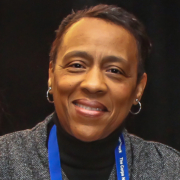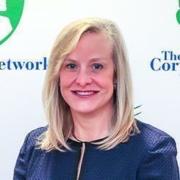
For the month of July, The Corps Network is highlighting Corps across the country working to conserve water and energy. In Colorado, the Larimer County Conservation Corps (LCCC), engages AmeriCorps members in installing water and energy saving solutions in homes.
Founded in 2009, the LCCC’s Water and Energy Program is a full-time, winter/spring service program for people ages 18-25. The program partners with Fort Collins Utilities and Loveland Water and Power, two utility and energy providers in Larimer County. The Corps has been working with them to achieve Fort Collin’s climate goal of being carbon neutral by 2035. AmeriCorps members serve directly in the community, assisting lower income homes by assessing their efficiency and retrofitting them with more sustainable solutions that are friendlier for the environment and the homeowners’ bills.
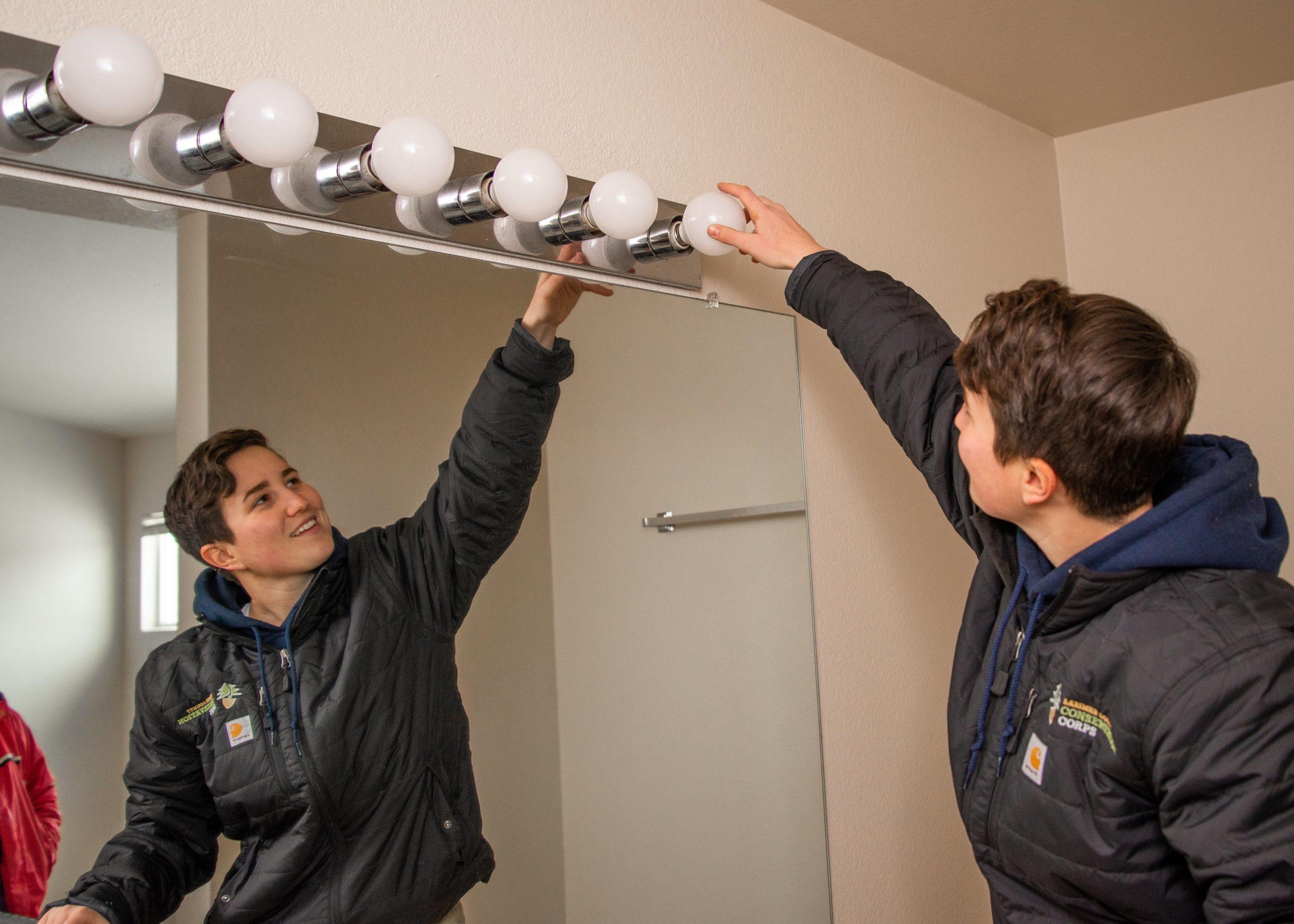
Home Efficiency Assessments:
There are eight AmeriCorps members on the LCCC Water and Energy crew. Every day, the crew splits into four teams; each two-person team has a daily goal to complete three home assessments. Each assessment takes about two hours.
The service is free and involves a tour of the client’s home, an assessment of the energy being used and purchased, and an evaluation of how the cost and energy usage can be decreased through more sustainable solutions. The AmeriCorps members offer everything from LED lightbulbs to high efficiency toilets. They also offer safety items, such as smoke and carbon monoxide detectors.
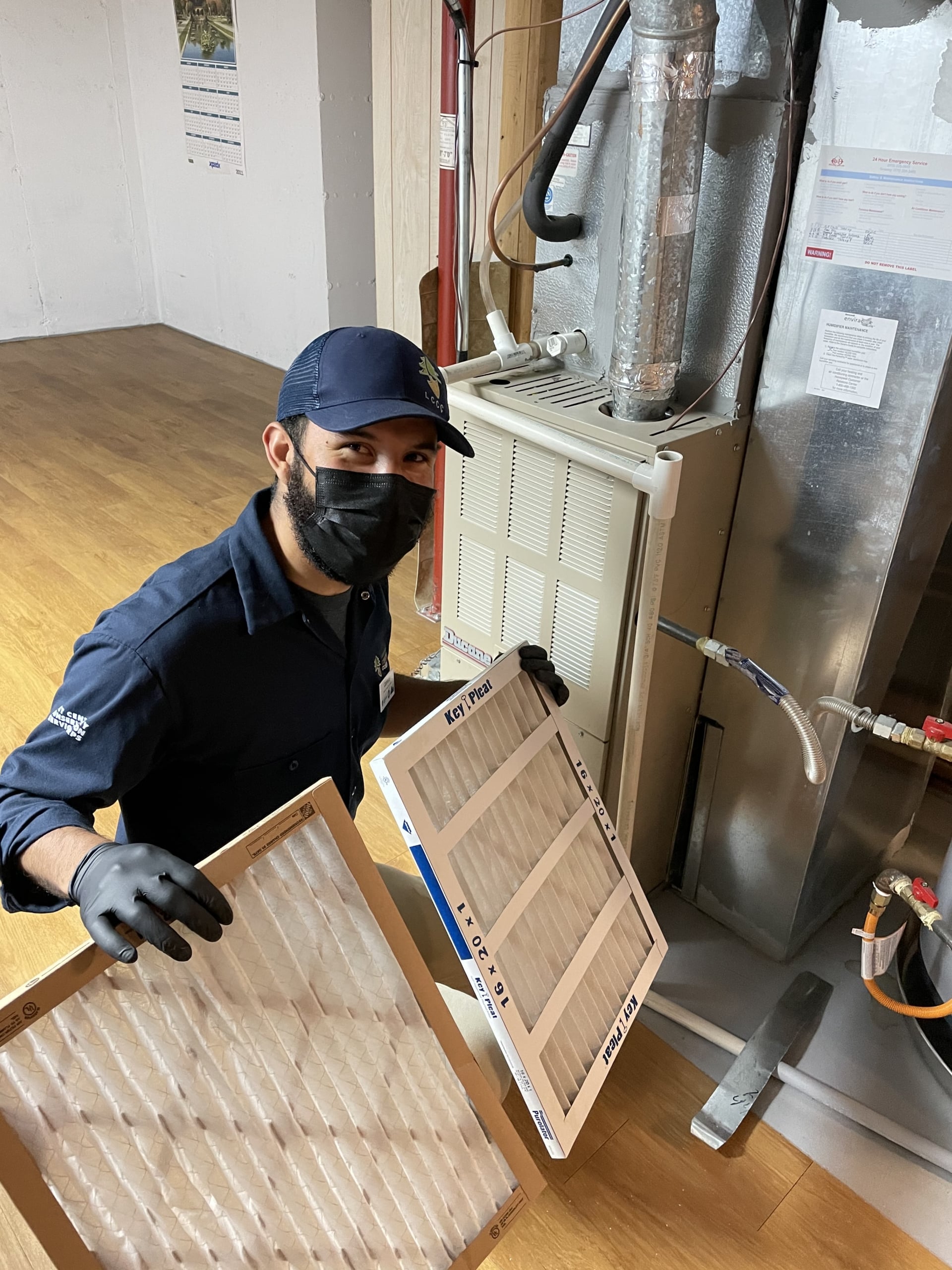 Education:
Education:
Whether or not clients choose to have sustainable products installed, a major component of the Water and Energy program is education and awareness.
“We are not trying to tell people how to live, we are trying to educate them and encourage them to save as much as possible,” said Tayler DeBrosse, LCCC Program Coordinator and an alum of the LCCC.
AmeriCorps members provide homeowners general education, from explaining kilowatts to how to read their energy bills. They also share information on local rebate programs and other regional conservation efforts.
AmeriCorps members undergo a thorough home science training; when clients have specific questions about say, moisture problems caused by insulation, they can better inform and meet the needs of the clients. Additionally, AmeriCorps’ emphasis on education ensures that AmeriCorps members have many opportunities to learn throughout their tenure with the Corps. Experiential learning at the Corps includes tours of the New Belgium Brewery in Fort Collins to hear about their sustainability goals, and going to the Rawhide Power Plant to see how the county’s energy is produced. This not only helps AmeriCorps members have a better understanding of sustainability but also helps integrate them into the community and helps them relate to customers.
Among themselves, AmeriCorps members bolster one another’s education by sharing their own unique educational backgrounds and areas of expertise with morning presentations on everything from watersheds to forest health.
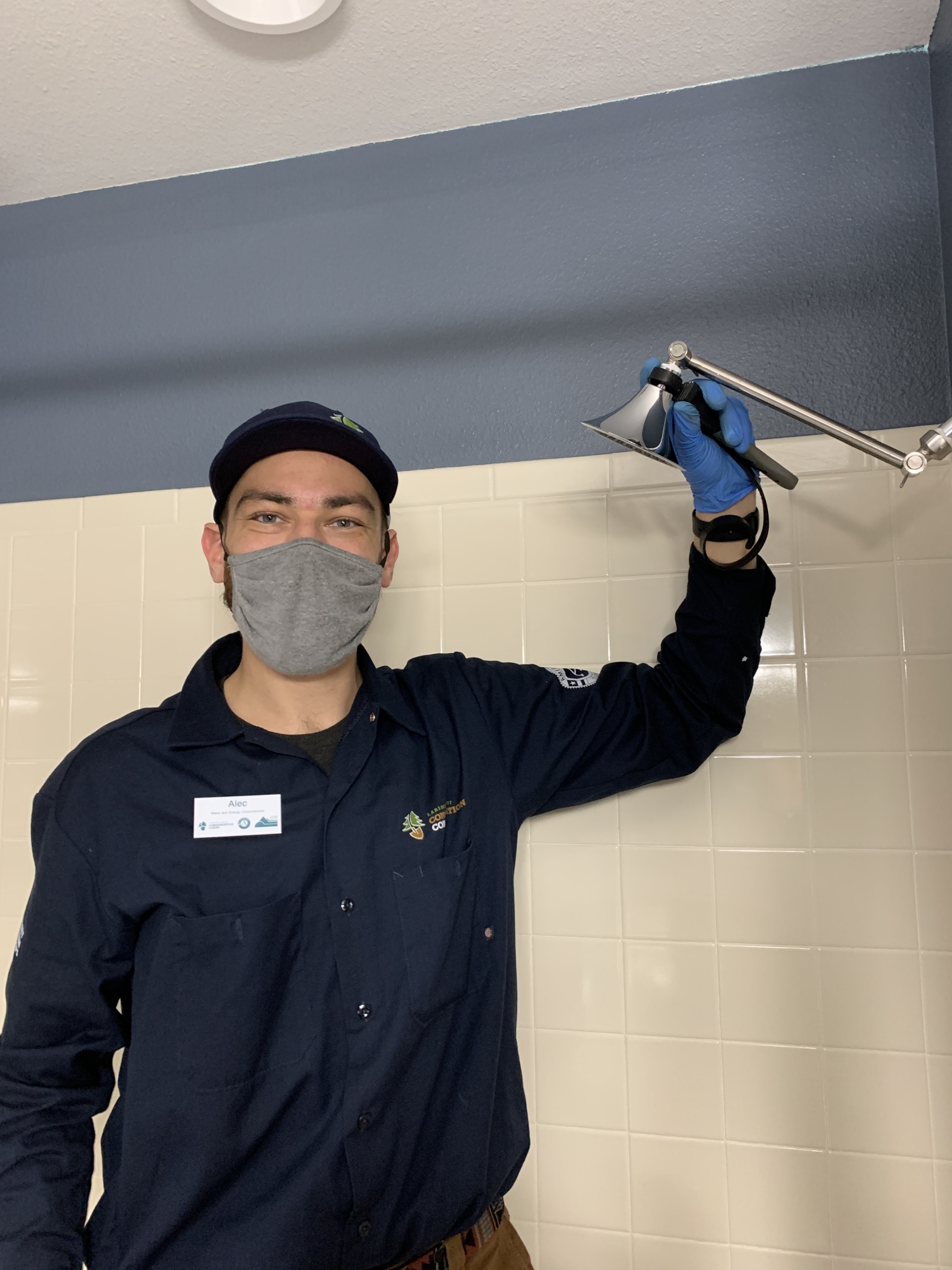 Home Assessment Clients:
Home Assessment Clients:
To find clients for the program, DeBrosse notes that word of mouth is the biggest way they get people to sign up. The only qualification is that clients receive their utilities from one of the Corps’ partners, though their priority is clients from lower income communities. To reach potential clients, the Water and Energy Program presents at Fort Collins Utilities Income Qualified Assistance Program meetings, and over social media. They have also done radio ads and reached out to landlords to spread their program to tenants.
COVID-19:
COVID-19 posed a problem to the in-home assessments at the start but didn’t stop the sustainability mission. When the 2020/21 season rolled around, the Water and Energy Program created a back-up plan of virtual assessments that could be done without in-person interaction. Virtual assessments take place on Zoom and work much like an in-person assessment. AmeriCorps members ask the homeowner general questions, gather data, and assess their needs. From there, depending on the homeowners wants, the AmeriCorps members could build a kit of lightbulbs, low flow shower heads, faucet aerators, etc. and drop them off at the homeowner’s doorstep.
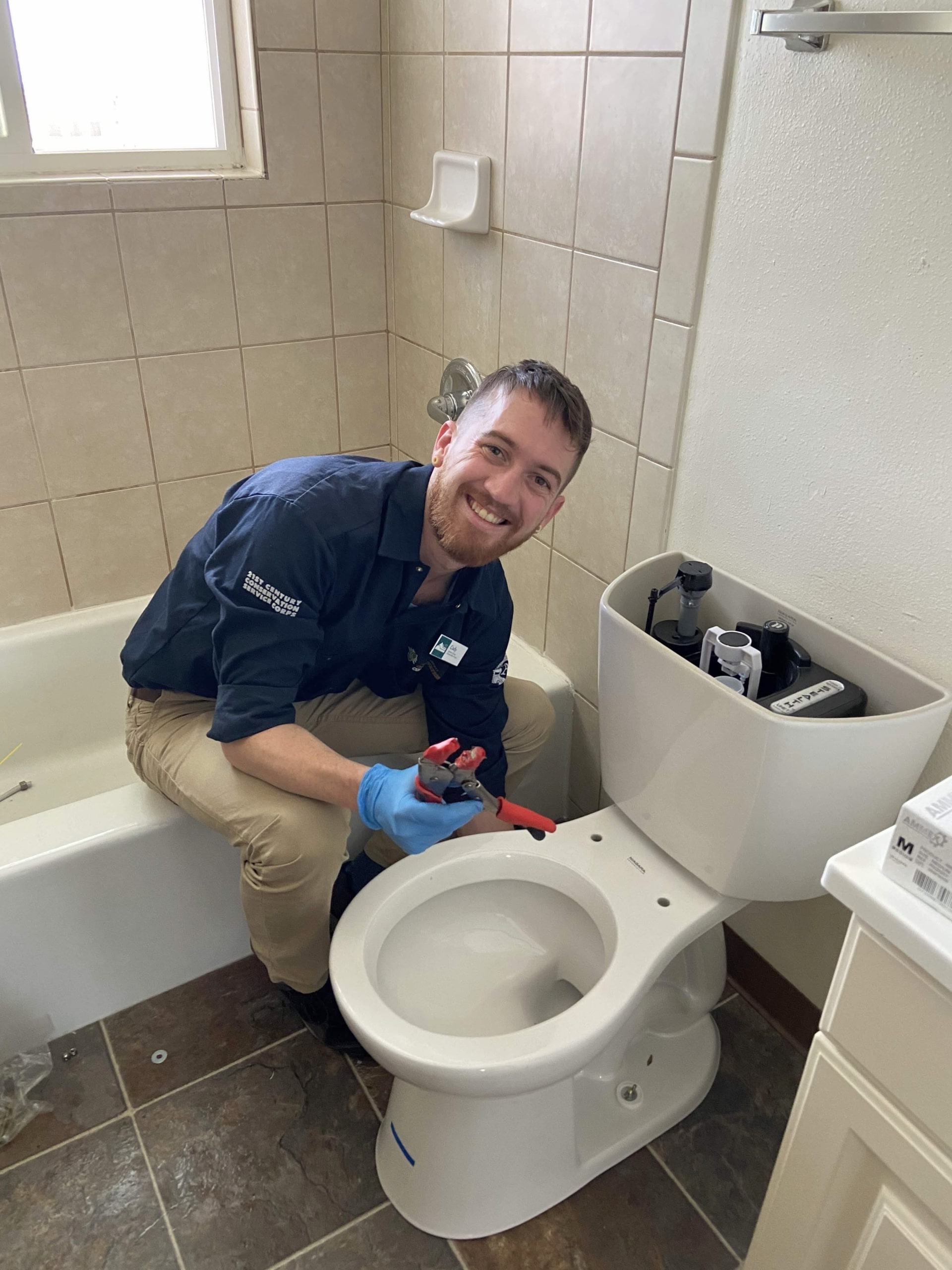 Impact on AmeriCorps Members:
Impact on AmeriCorps Members:
AmeriCorps members come to LCCC’s Water and Energy Program from across the country. Unlike many other Corps programs, which are typically more nature based, the Water and Energy Program offers a different approach to implement sustainability into the community. DeBrosse says:
“I think this program offers a really unique skillset…it helps form the bigger picture of how these natural resources relate into how we directly use them in our homes and in our communities.”
The program attracts many young people interested in pursuing a career in conservation, and the Corps makes sure to help them on their journey by giving them opportunities to network, shadow professionals, and participate in professional development workshops.
Since 2011, the LCCC’s Water and Energy Program has assessed 5,919 homes. They plan to continue expanding their program to reach more homes and potentially even commercial buildings in the future.

























